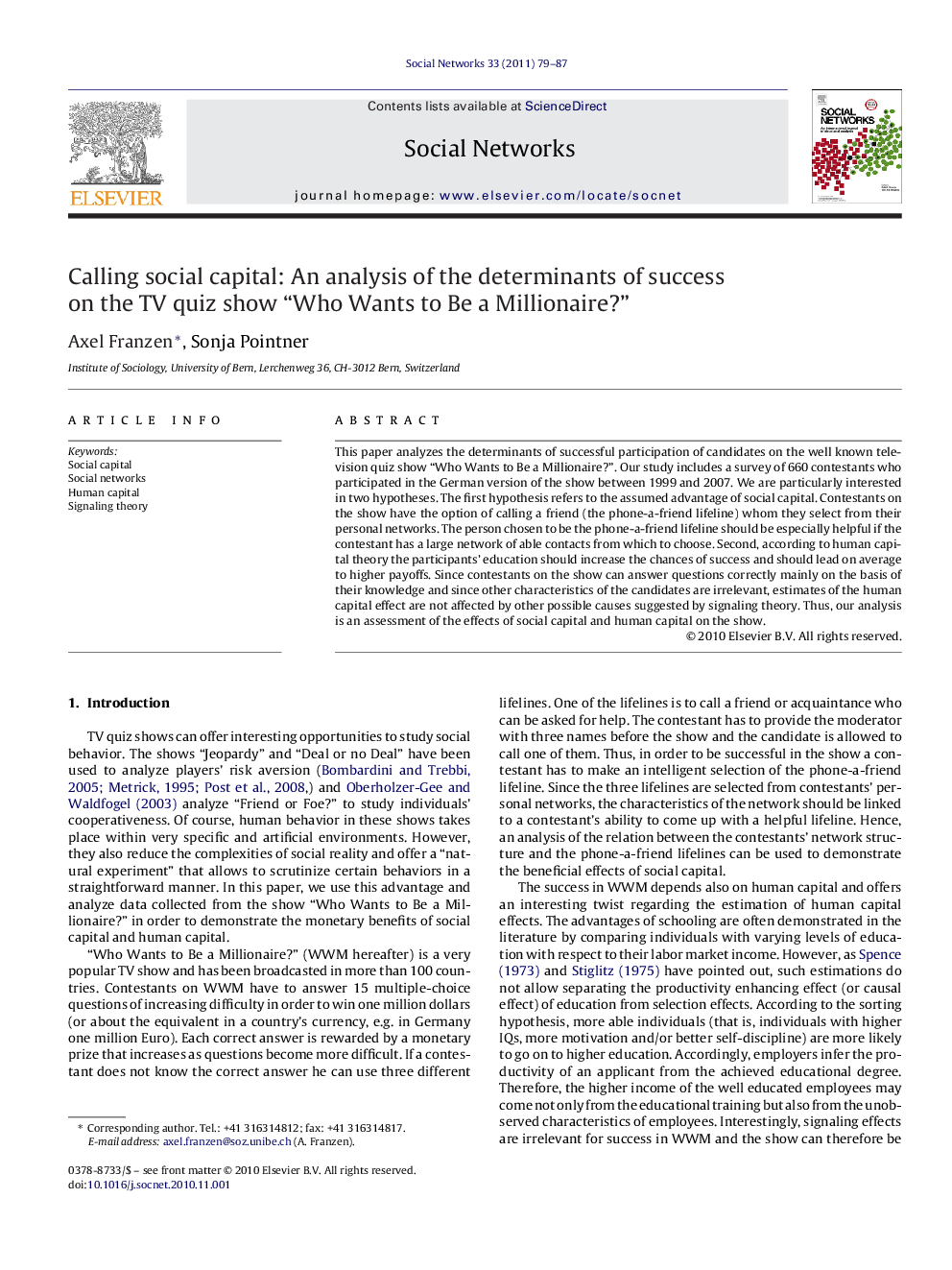| Article ID | Journal | Published Year | Pages | File Type |
|---|---|---|---|---|
| 1129390 | Social Networks | 2011 | 9 Pages |
This paper analyzes the determinants of successful participation of candidates on the well known television quiz show “Who Wants to Be a Millionaire?”. Our study includes a survey of 660 contestants who participated in the German version of the show between 1999 and 2007. We are particularly interested in two hypotheses. The first hypothesis refers to the assumed advantage of social capital. Contestants on the show have the option of calling a friend (the phone-a-friend lifeline) whom they select from their personal networks. The person chosen to be the phone-a-friend lifeline should be especially helpful if the contestant has a large network of able contacts from which to choose. Second, according to human capital theory the participants’ education should increase the chances of success and should lead on average to higher payoffs. Since contestants on the show can answer questions correctly mainly on the basis of their knowledge and since other characteristics of the candidates are irrelevant, estimates of the human capital effect are not affected by other possible causes suggested by signaling theory. Thus, our analysis is an assessment of the effects of social capital and human capital on the show.
